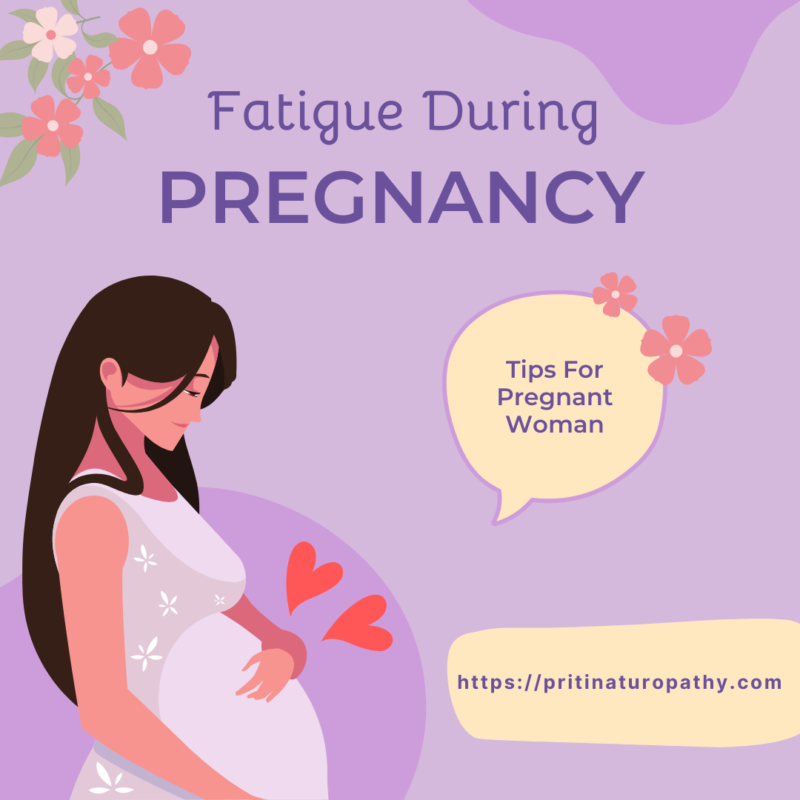Introduction
Pregnancy is a beautiful yet challenging journey, and fatigue during pregnancy is a symptom that is very common and almost every woman experiences it at some point. For many, exhaustion begins early in pregnancy and continues throughout the nine months, varying in intensity.
However, for some, it can be more pronounced, and often, it can feel overwhelming to the extent that even small tasks seem difficult to accomplish. If you are feeling persistently tired, know that you are not alone, and there are ways to manage and reduce fatigue effectively.
It is important to remember that our body goes through significant physical, mental, and emotional changes during pregnancy, which require a lot of energy. Our body needs extra oxygen and produces more blood cells.
The growing baby in the womb also demands nutrition, which further increases energy consumption. Additionally, hormonal changes can make the body feel sluggish, and in some cases, cause dizziness and nausea.
Why Does Fatigue Occur During Pregnancy?
Fatigue in pregnancy is a result of profound changes happening in your body to support the growing baby. Here are some key reasons why fatigue occurs:
Increased Energy Demand
During pregnancy, your body works extra hard to nourish and sustain the growing fetus. This means that your metabolism speeds up, and your body consumes more energy than usual.
Hormonal Changes
There are some changes in hormones, especially progesterone, that plays a significant role in making you feel tired. Progesterone is essential for maintaining pregnancy, but it also has a sedative effect on the brain, leading to drowsiness and fatigue.
Changes in Blood Circulation
Pregnancy increases blood volume by almost 50% to support both you and the baby. This extra blood supply can make your heart work harder.
Emotional and Mental Stress
Pregnancy is also an emotional journey, there are some life changes occurs that may be lead to mental stress, which contributes to fatigue.
Poor Sleep Quality
Many women have trouble sleeping due to hormonal changes, frequent urination, heartburn, or discomfort as the belly grows. Lack of restful sleep directly results in increased exhaustion during the day.
Coping with Fatigue
In the early stages of pregnancy, fatigue may be extreme, making even simple daily tasks seem exhausting. Accepting fatigue is one thing, but dealing with it continuously is another. The body goes through hormonal changes, which are beyond our control. However, small lifestyle changes can make a significant difference. Constantly thinking about fatigue can make it worse, so it’s better to focus on solutions.
How to Manage Fatigue During Pregnancy?
There are simple ways to manage and reduce fatigue. Here are some effective strategies:
Rest and Sleep
Try to listen to your body and rest when needed and take at least 7-9 hours of sleep every night. Follow bedtime routine, such as drinking warm milk, meditating, or reading a book, to promote better sleep quality.
Balanced Diet
Your body needs additional nutrients during pregnancy, so eating a well-balanced diet can help prevent fatigue. Include:
Iron-rich foods – (spinach, lentils, dried fruits) to prevent anemia.
Protein-rich foods – (eggs, dairy, legumes) to maintain energy levels.
Complex carbohydrates – (whole grains, oats, quinoa) for sustained energy.
Healthy fats – (avocados, nuts, seeds) for proper brain function.
Fruits and vegetables for essential vitamins and minerals.
Avoid sugary snacks and processed foods, as they cause a spike in energy followed by a sudden drop, leading to even more exhaustion.
Stay Hydrated
Dehydration can worsen fatigue, so make sure to drink at least 8-10 glasses of water daily. You can also include fresh fruit juices, coconut water, and herbal teas for hydration.
Exercise and Yoga
Gentle physical activities, such as walking, prenatal yoga can boost circulation, improve mood, and reduce fatigue. Yoga asana like Sukhasana (Easy Pose) help to improve blood flow and relieve tiredness.
Reduce Mental Stress
Engage in activities that relax your mind, such as meditation, deep breathing, journaling, or listening to soothing music.
When Should You Be Concerned?
While fatigue is a normal part of pregnancy, extreme or persistent exhaustion might indicate an underlying issue. You should consult your doctor if:
- Fatigue is accompanied by dizziness, fainting, or rapid heartbeat.
- You feel depressed or overwhelmed most of the time.
- You have difficulty breathing or experience unexplained weakness.
- Your fatigue is getting worse instead of improving in the second trimester.
These symptoms could be a sign of anaemia, gestational diabetes, or thyroid issues, which require medical attention.
Smile and Stay Positive
Pregnancy is a time of transformation, and every mother has her own unique experience. If it is your first pregnancy, the changes might feel overwhelming, but with time, you will understand your body’s needs better. Maintain a positive attitude, smile, and remind yourself that this is a temporary phase. By keeping yourself happy, you will also ensure the well-being of your baby.


Leave a Reply